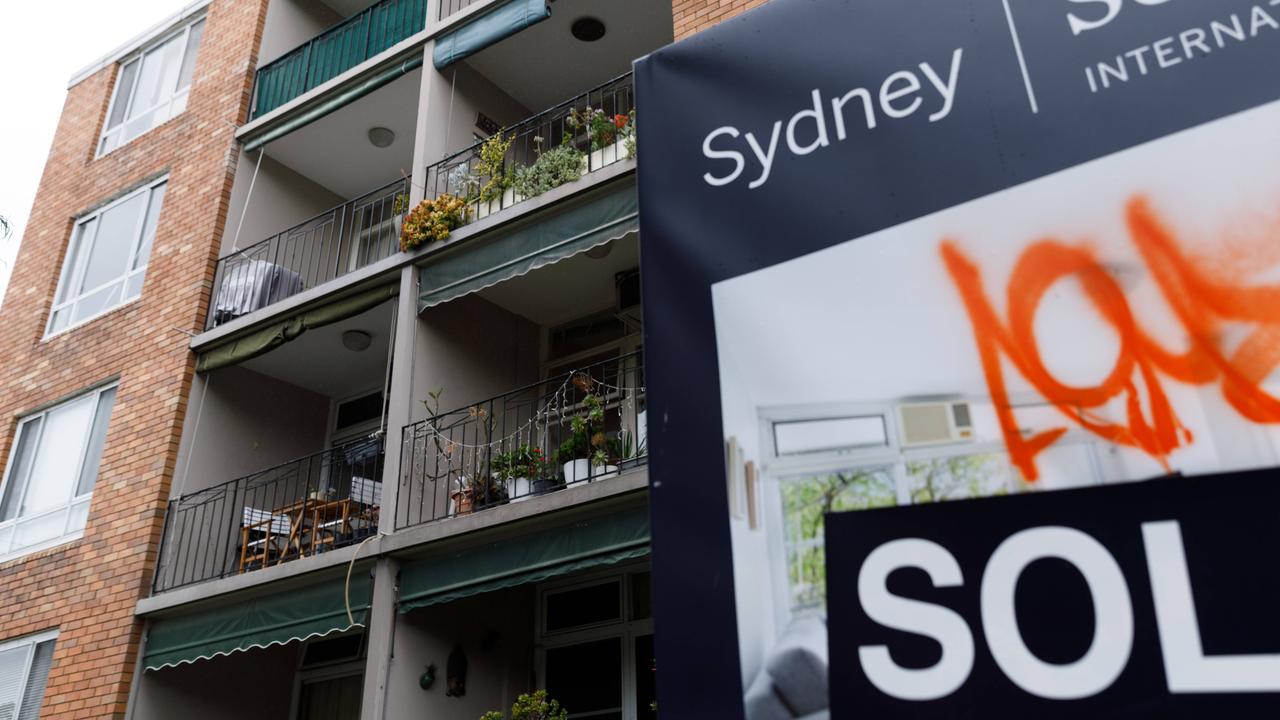How Robyn Williams saves his hard-earned cash
ROBYN Williams hasn’t bought clothes in over a decade, own a phone and he still uses a typewriter. This is how he does it.
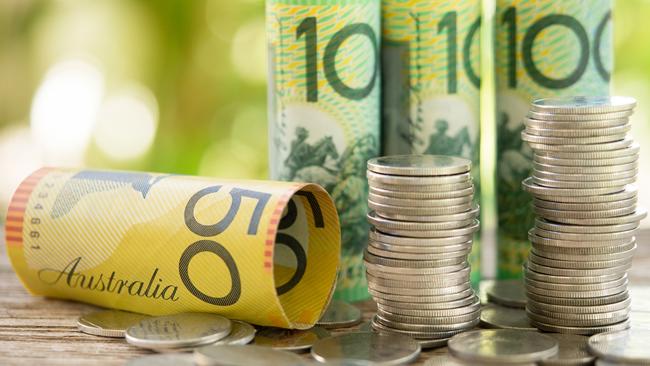
SLUM child. This is what Jonica sometimes calls me. In a way it’s true.
After my family’s time in the lap of luxury in Vienna, we fell severely from grace in the 1950s.
Our family income back then was minuscule, and when my father died in 1962, virtually non-existent. There was no widow’s pension for my mother — as an unmarried woman she wasn’t a widow. She had a tiny sickness benefit and that was it. I did newspaper rounds, collected bottles to claim the deposits in the off-licence (grog shop) and we just went without.
In the great British phrase that covered so many families during and after the war, we ‘made do’.
It’s a habit that stays with you. Here, in 2018 I own no car, have no mobile, have never owned a camera, golf clubs or similar kit. I live in a house called Termite Towers that is 3.6m wide and I haven’t bought clothes in over a decade. As the ABC gets ever more austere, as they take away our offices and make us work in call centres, I react like Brer Rabbit ‘born and bred in a briar patch’: I make do among the nettles.
When I began The Science Show in 1975 we had producers attached, reporters on standby in various parts of the world and in parts of Australia, and I would commission what I thought could be good that week almost without limit. No longer. The Science Show team is now me and David Fisher. And we both do much more than that one show. There are no researchers, no reporters here or anywhere else. I rely on rule 17 subsection 34 of the Old Mates Act. If a friend has been sent somewhere by the BBC or some other broadcaster, I get offered a piece for me, on a freelance basis, of course. This makes it appear that I have reporters at my disposal, but I can’t ask them to do anything unless they are already going somewhere anyway. So, you can’t pick an important topic and ask a reporter to follow it up thoroughly as we once did. Then there are friends such as Sharon Carleton who are always willing to try a feature, if there’s time, as a favour. We make do.
In #Turmoil, Robyn Williams writes frankly about everything, from performing with #MontyPython to being treated for bowel cancer. Signed copies available --> https://t.co/uzwVIqCFOl @newsouthbook pic.twitter.com/saDgc5Cjrs
— booktopia (@booktopia) September 1, 2018
If I go on holiday, to Greece or Galapagos or even to Shoalhaven, I magically find a recorder with me and make shows for the ABC. And I also cut costs personally. It’s another game.
So, sometimes, when off on my own for the weekend, if I find say $15 dollars in my pocket, I try to make it stretch out for all meals. Buy a bag of spuds from Paddy’s Market, plus some mushrooms and a veg (brussels sprouts) and three corn cobs for three lunches all for $5, two chicken drumsticks for 80 cents, and a loaf of bread on special ($4) and you’re on your way. That’ll last three days. (One caveat: there is always wine provided by the Bottle Fairy, but that would spoil the story, wouldn’t it?) There is usually stuff lingering in the fridge left by other intemperate people — to hell with the use-by date. If it’s not putrid or furry it’s OK. Slum child.
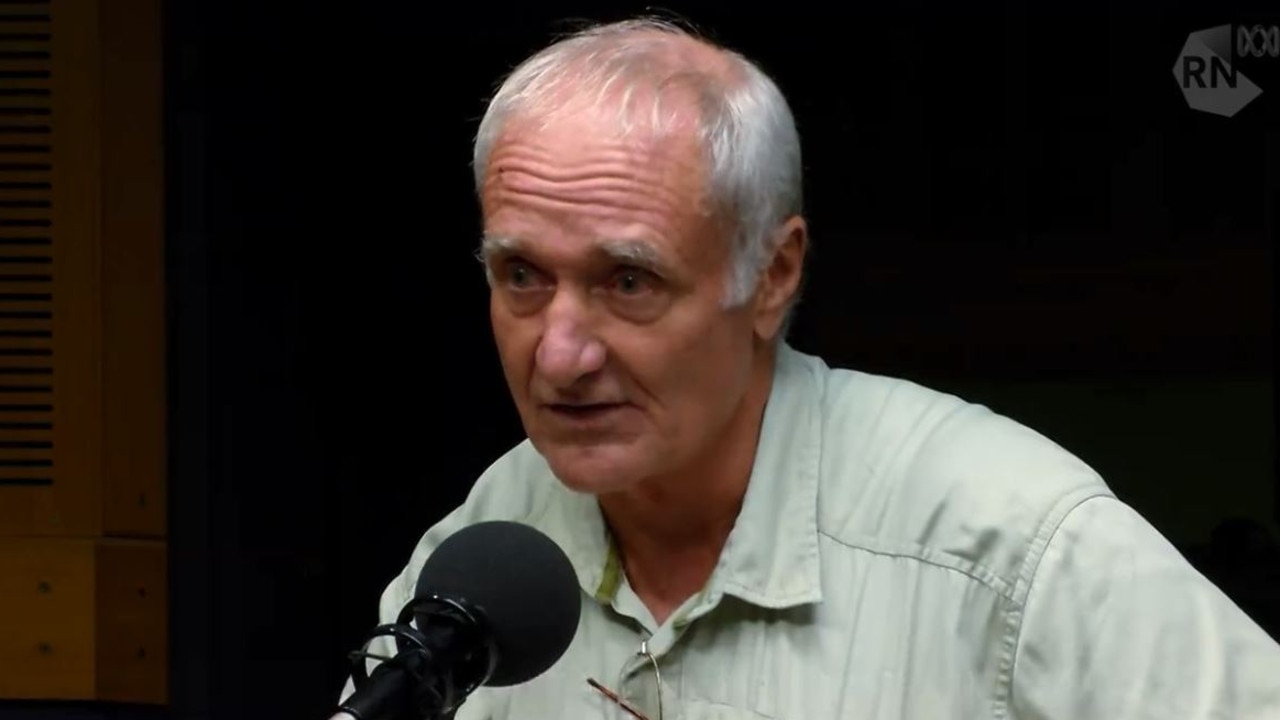
Nothing gets thrown away if it is at all useful. The magazines we get sent have an address on one side of an A4 sheet inside the plastic bag. I turn the paper to its blank side, put it in my typewriter and do my script. Yes, typewriter. That’s what enables me to use no fresh paper supplies, as well as relying on the limitless sheets abandoned at every photocopier or printer by cavalier colleagues. I have not used a sheet of new paper since 1972. Does it make any difference to the world and our green future? Probably not. But I never have the impasse of computer failure or a printer jam — my scripts are always ready. At least until the typewriter ribbon eventually runs out one day. I have six left. (Stop press: the head of Radio National, Deb Leavitt, when passing through Amherst, Massachusetts, has found a typewriter shop stocking ribbons — I am extended for three years.)
There is a theory, augmented by experience, that governs my radio scripting. It matches the prohibitions on driving while talking on your mobile. Your attention is diminished on both. I write on the typewriter and play sound and edit on the computer. At the same time, but they are separate. It works. I often have kind remarks made about the precision of my scripts (do look up Les Murray’s sweet poem on The Privacy Of Typewriters) and I am often mystified by some awful writing, as Murray remarks, that must have looked so neat and credible on the screen.
Great to see #RobynWilliams yesterday! Robyn writes frankly about everything, from performing with #MontyPython to being treated for bowel cancer in his new book #Turmoil! Signed copies available --> https://t.co/uzwVIql4pL pic.twitter.com/pVgo1EEYI2
— booktopia (@booktopia) August 29, 2018
People will tell you I don’t use computers and combine this with the absence of a mobile to accuse me of being a Luddite. Not true. I’m not Ned Ludd and, besides, he never existed. I just hate waste and loathe unwanted communication. I do carry a phone made of wood and slate sent to me by Henry Hoke. It is the Hoke’s phone and was sent to me by a prankster who made the ABC TV series The Lost Tools Of Henry Hoke, about the inventing genius from Hoke’s Bluff. (Remember? Written by the mischievous Mark Thomson, it was narrated by Bryan Dawe. Look it up online and weep with joy.) I often take it out and stride through hotel atria shouting instructions to my imaginary broker as I hold it to my ear. Or I do thumb dances on it at the table or when walking down the corridor. It has a stick of chalk inside and you can extract it, write a message on the slate and give it to your interlocutor to reply. Real men blink in confusion.
Ultimately my life will have made no difference to the rise or fall of civilisation, but aesthetically it is sublimely satisfying to use just what’s needed and no more. It is also fun to tease the neophiliacs who insist on having each iGadget as it comes out of the iFactory whatever the vast iCost.
I use radio headphones bought from Radio Shack in the USA for $25. The plastic joins are falling apart so I fix them (as I do my trousers) with gaffer tape. Senior managers at the ABC are apoplectic about this and urge me to get a phone with an app — for a mere $900. An iDevice costing 36 times mine and with at least 15 capacities I don’t need and wires dangling where now I have none.
What is the point of all this derro behaviour? Apart from efficiency, privacy and the chance to be smug, it allows me to be lavish when I need to be. If you don’t spend like a normal chap on steroids, you can save masses. This is the lesson of the slum child. All those lunchtimes as a boy with nothing to eat, all those hitchhiking holidays sleeping on beaches and watching the well-off swanning in and out of shining hotels. If you want to have what the rich have, spend nothing and hoard cash.
So it is that I now have June in Greece and the Amalfi Coast. We fly business. We have to. Jonica has a part-tungsten spine and can’t sit in a seat for more than two hours, and I have no rectum. Cancer took that and half my gut in 2014. Try economy toilets with personal plumbing like that. Doesn’t work. If the queue in economy is long, as it always is, I am in deep trouble. So are my trousers.
This means that, being in the twilight years with no mortgage and parsimonious habits of an almost clinical kind, I can wave a financial wand. I just unleash those savings and upgrade life aloft. People in the corporate world hearing this are incredulous. They really believe we exist only on the taxpayer’s teat.
Yours truly, the Luddite derelict, is also able to wave a magic family wand when emergencies occur, unlike my own parents who ended up with no such choices.
Does it take some kind of partially crippled mind, the psyche of the hopelessly anal retentive, to live like this? Am I utterly OCD? Well, you do notice too much real life if you are me: how others throw away too much, how they observe use-by dates to the minute, buy too much, squander. When I line up at supermarkets and see trolleys piled high as if to feed and wipe an army, I want to unload nearly all of it and then confiscate their dozens of plastic bags. Aren’t they thinking? Those overlarge damp blokes with huge bellies and big shorts and larger ladies who always pay with plastic cards and take forever to enter their numbers. Oh, the self-righteous frustration! ‘You can’t possibly eat all those grey sausage rolls! Why d’you need 50 bottles of Virgin Spring Water imported from distant alps, you’re not in the Simpson Desert! Is your cuisine made up entirely of diet boxes of gluten-free frozen crap?’
Jonica prefers not to go shopping with me. I carry a cloth bag I acquired in 1996 to buy three small items, all on special. She does want me to go to a good shop with her to buy clothes but I reply I did that also in 1996 and what with the odd shirt provided as a Christmas present I’ve calculated that I now have more apparel than I have likely lifespan. Derro.
But it is instructive to do calculations on those energy bills people are cross about and which seem to be influencing elections. Why don’t folk turn things off? I can find about a third of the devices in a house or an office switched on unnecessarily. People don’t notice. Maybe they don’t care, despite whingeing about the hefty bills.
This training in the slums does, however, mesh nicely with environmental sensitivity. It is crazy to throw away so much of Australia’s food: about 30 to 40 per cent per annum or $25 billion worth. At least. There’s nothing more sickening than seeing a party with catering for at least twice the number of people present — not that fewer have turned up, just that so much more grub is provided than was remotely sensible. It is inelegant. Good food is invariably dumped for ‘health’ reasons.
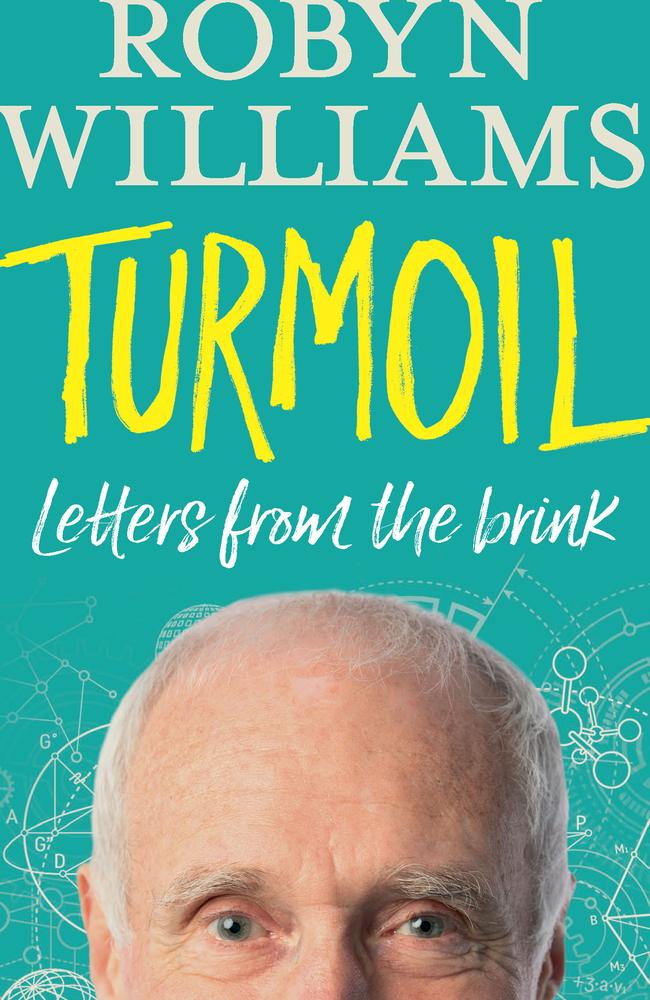
As for the rest: paper lasts for two to five months on a tip; plastic-coated milk cartons for five years; plastic bags 10 to 20 years; aluminium cans 50 to 100 years. Glass bottles sit there for a million years. And e-waste? In Australia, we chuck 578,000 tonnes a year. Imagine each tonne is equivalent to a small car. Then picture 600,000 of them parked in a field all together. Waste. Come back a year later and it’s doubled. All your computer junk (some of it rejected only because it is last year’s model, like a suddenly unfashionable frock) piled high. Sometimes it’s sent to China. On a big ship. But now, no more.
In 2018, my friend Professor Veena Sahajwalla launched the world’s first electronic waste microfactory. It extracts precious minerals from the waste and even has a 3D printing facility. She is the hero, by the way, who has managed to recycle the carbon of two million old tyres, in Australia alone, to make steel.
As for air travel, I put it under life’s essentials, like having one or two babies. The Chinese (again!) tried a one-child policy and it didn’t work, causing untold misery. And air travel, in terms of greenhouse gases, is now better than the carbon-cost of the internet and getting better all the time. Solar planes are flying and soon even the CEO of Qantas will agree, as has Richard Branson, that his company should include very fast trains and take up the challenge of routes such as Melbourne to Sydney (the fourth highest air traffic volume of any
in the world) so as to cut the number of planes needed to fly.
Water is also a concern of mine. My behaviour is accordingly extreme and guaranteed to annoy. I keep a large saucepan in the kitchen sink to catch all hand washings, salad rinses and random drips and take the result several times a day to the garden or to flowers in vases and our many bird baths. This reminds me to look after thirsty plants and to go spare on water taps. Our water usage is heroically low. Not so our bills though, interestingly enough. As I write it’s the driest September in NSW on record. Why waste a drop? Why pay more?
Great to see #RobynWilliams yesterday! Robyn writes frankly about everything, from performing with #MontyPython to being treated for bowel cancer in his new book #Turmoil! Signed copies available --> https://t.co/uzwVIql4pL pic.twitter.com/pVgo1EEYI2
— booktopia (@booktopia) August 29, 2018
But, in case you want to emulate my saintly practice, be warned: Do it when no one is looking or they will start muttering and looking up syndromes in psychiatric lexicons.
There is, however, a serious link between parsimony and effective environmental action. If you are too poor, as the folk in parts of Mexico and Indonesia obviously are, then the viciousness of squalor and the outrageous cost of thoughtless pollution are crippling. I have seen waterways in Mexico and (on film) in Indonesia so clogged with plastic and rubbish that the water itself is toxic and unusable. In Indonesia the incessant burning of peatlands and forests cleared to plant palm oil not only murders hundreds of thousands of people through foul air every year, it also kills the reefs. Smoke from fires descends on corals and chokes them and, in the process, destroys fisheries.
What’s more it harms sea grasses. Is this a detail too far? No, sea grasses absorb and store 40 to 100 times more carbon dioxide than do tropical rainforests. This is blue carbon — it is a godsend and I say this as an atheist. Instead of dredging our coastline as we develop concrete shores where mangroves once stood, we could be restoring our natural riches and creating a calmer climate. Sea grasses also eliminate 50 per cent of the germs and plagues in coastal waters. Three magnificent benefits. Once more one can show that thinking green can save lives, money and industry (the fishing industry and tourism) whereas neglect costs so many lives all over our region.
Jane Lubchenco, former US president Barack Obama’s head of NOAA, mentioned earlier, who had spoken so incisively at the rally in Boston, told me in 2017 that they have studied the effect of preserving coastlines, sea grasses, mangroves and therefore fisheries, and discussed enterprises based on them with locals working in tourism, the sea and conservation. When they compared the wealth creation of that approach with one based on development (concreting the coastline), they found that the green approach yielded 30 per cent more income.
Slum children know the cost of everything and the value of much more. Their habits may be annoying but there is much more to consider. There is aesthetics: the elegance of tidiness. There is wealth: the richness of effective harmony. And there is progress: giving people
room to move as the gridlock of squalor is broken.
War is the greatest creator of waste. George W Bush, reacting to 9/11, invaded Afghanistan and stayed. The cost is now $US3 trillion. Add Iraq.
Another old story. When we were in Vienna, living in the top flat of a typical European block of apartments, my little brother was just months old. During play, he dropped his teddy bear under the bed. For some reason (I was just over seven years old) I magnanimously
went to fetch it. I looked underneath the bed. There was a pair of eyes looking back. There was someone living under the bed.
This was post-war Austria: the occupying troops were still marching through the broken streets and the pocks of gunfire still looked fresh on the walls of nearly every building. Shops sold little and the black market was pitiless. Though we were well off, I had already absorbed the
desperation of the streets.
I retrieved the teddy and said nothing. I was being cool.
I asked Trudi, one of our nannies, in German — ‘Who is down there?’ She was shaking as she told me: ‘It is my sister. She’s been there for three weeks. She has lived by giving blood but now she has run out of blood to sell and has nowhere to go.’ I told my parents, little sh*t that I was. However much I felt that woman’s need, I preferred the attention given to a sneak. The sister went down to the cellar in the building’s basement to live with the coal and the rats.
Even at age seven I knew what it was to be bereft. Slum child.
Robyn Williams is radio broadcaster with the ABC, known best for presenting The Science Show on Radio National. This is an extract from his new book Turmoil: Letters From The Brink, NewSouth Publishing, $32.99, out now.



